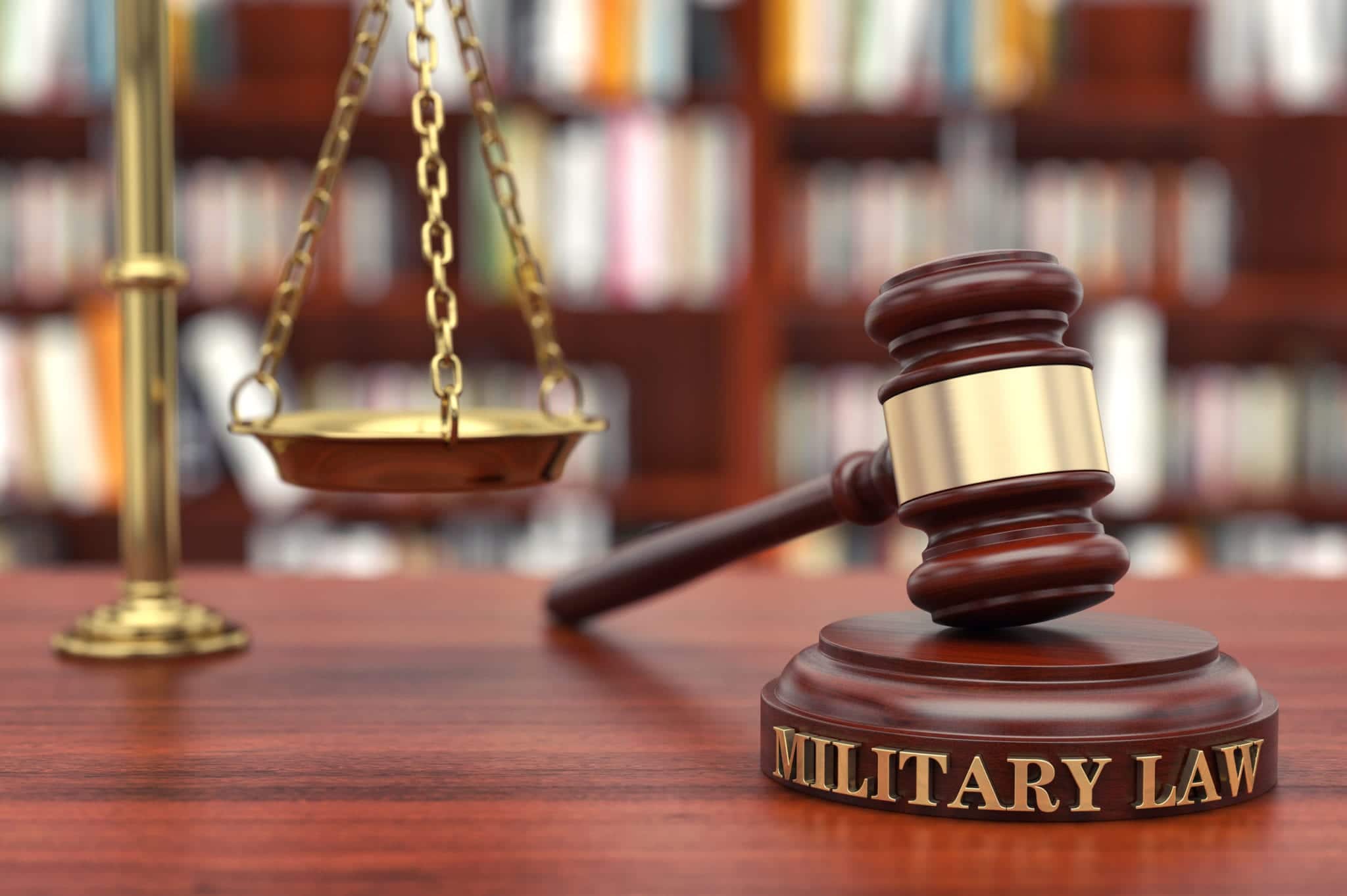
As a member of the armed forces, you have increased responsibilities as you serve your country. These responsibilities include obeying the body of laws and rules outlined in the Uniform Code of Military Justice (UMCJ). This code criminalizes offenses that would not result in criminal charges for civilians, such as insubordination or fraternization. In addition, if you commit a regular criminal offense, you can be tried in either civilian or military court.
As a general rule, you can expect sentencing in military court to be more severe than in civilian court. Because of this, if you are a service member, it is important to be aware of military criminal law and procedures and how they can affect you and your military career.
Military vs. Civilian Court Authority
As mentioned above, when armed forces members commit crimes, they can be prosecuted in either civilian or military court, regardless of whether the alleged crime(s) occurred on or off of a military base. This is determined on a case-by-case basis.
However, the Uniform Code of Military Justice outlines a number of crimes that are purely military, and as such will be tried in military court.
Fraternization
Fraternization is an inappropriate friendship or romantic relationship between service members. This includes relationships between officers and enlisted service members that have an adverse effect on the chain of the command or are otherwise are suggestive of impropriety. When you’re in the armed forces, it is very important to pay special attention to who you form relationships with and prioritize your position and duties first.
AWOL
A service member is considered guilty of Absence Without Leave (AWOL) if he or she fails to go to an appointed place, leaves that place, or is otherwise absent from his or her appointed unit of duty. Going AWOL can be a very serious offense.
Missing Movement
Neglectfully missing the departure of one’s ship, aircraft, or unit may result in a missing movement charge.
Missing movement occurs when the accused:
- Was required to move with a ship, aircraft, or unit
- Knew of the movement
- Missed the movement through neglect or design (intent)

Insubordination
The chain of the command is the primary means by which the military maintains order. Behaving in a manner that disrupts the chain of command could result in an insubordination charge. In general, insubordination includes assaulting, disrespecting, or disobeying a superior officer.
The Court Martial Process
A court martial is a criminal trial in military court for service members who are accused of crimes listed in the “Punitive Articles” section of the UMCJ. Some of these crimes, such as larceny or manslaughter, are similar to civilian crimes. Others, such as AWOL and insubordination, are specific to the military.
There are three types of courts martial, including summary courts martial, special courts martial, and general courts martial. The type of court martial someone receives depends on the severity of the alleged offense.
Summary Courts Martial
These are quick procedures that are generally used for enlisted service members accused of minor crimes. Summary courts martial do not require a military judge or attorneys. Instead, one commissioned officer reviews the facts, precedent, and sentencing guidelines, and issues a decision.
Special Courts Martial
Special courts martial are reserved for more severe offenses. It is similar to a civilian criminal trial, and includes elements such as discovery, pretrial motions, trial, and sentencing. A military judge presides over a special court martial, a defense attorney is assigned to the accused, and a trial attorney is assigned to the prosecution.
A panel of three service members makes a ruling on the case unless the accused specifically asks the judge to make the ruling instead.
General Courts Martial
A general court martial is used for the most severe offenses, such as homicide and desertion. A general court martial includes a military judge and legal representation for the accused and prosecution.
A panel of five service members for non-capital offenses (and 10 service members for capital offenses) determines the verdict unless the accused requests that the judge determine the verdict.
The military judge may impose the maximum sentences allowed, including death, life imprisonment, or dishonorable discharge.
Civilian vs. Military Attorneys
Remember, in special and general courts martial, you will have an attorney to represent your case. The military can assign a military defense attorney free of charge, or you may opt to instead have a civilian attorney represent you.

If you opt to be represented by a civilian attorney, it is important to retain a lawyer with specific experience in military criminal defense. Military law procedure is different than civilian law, and as such, military cases require special expertise. Reach out to our office today to get the help you need.
About the Author:
Christopher Keyser is a Minneapolis-based criminal and DWI defense attorney known for fighting aggressively for his clients and utilizing innovative tactics to get the most positive results. He has been featured in numerous media outlets due to the breadth and depth of his knowledge, and recognized as a Minnesota Super Lawyers Rising Star (2014–2015), a Top 100 Trial Lawyer (2013–2015), and a Top 40 Under 40 Attorney (2013–2015).





